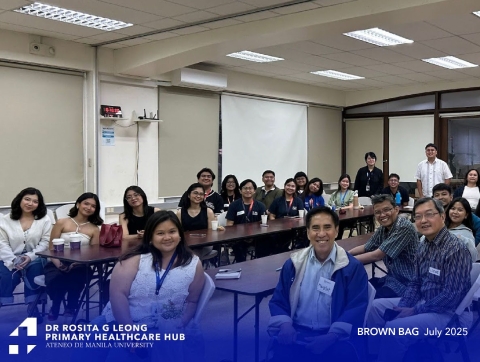Ateneo School of Government commits as torchbearers towards strengthening health policy and systems research in Asia-Pacific
13 Jun 2024
The Ateneo School of Government (ASOG), through the Ateneo Policy Center (APC), participated in a three-day workshop titled “Igniting HPSR Futures: Empowering Torchbearers in the Asia-Pacific” held on June 5 to 7, 2024 in Jakarta, Indonesia. The event was organized by Health Systems Strengthening Accelerator, in partnership with USAID Asia Bureau, Results for Development (R4D), Health Strategy and Delivery Foundation, ICF, and Bill and Melinda Gates Foundation.
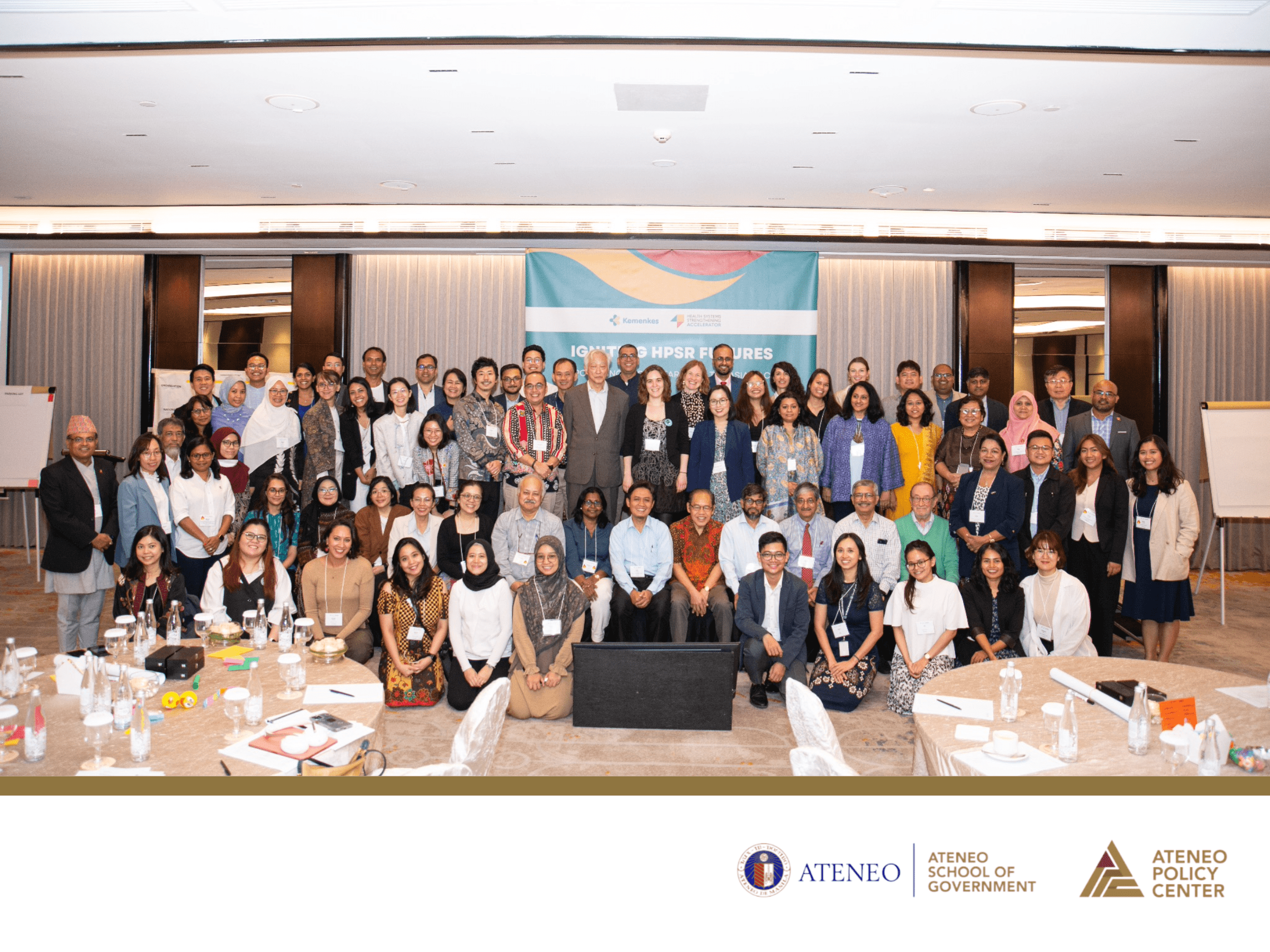
The hybrid workshop sought to deepen understanding of models of policy-research collaboration within and across countries, map opportunities for capacity strengthening, and identify ‘torchbearers’ who are committed to move the health systems strengthening agenda forward.
The workshop was attended by representatives from Bangladesh, Cambodia, Hong Kong, India, Indonesia, Japan, Lao PDR, Malaysia, Myanmar, Nepal, Singapore, South Korea, Sri Lanka, Thailand, Timor Leste, Vietnam, and the Philippines. The participants ranged from Health Policy and Systems Research Institution (HSPRI) researchers, government officials, representatives from regional networks, and development partners.
Day one: Gathering the kindling
The event commenced with opening remarks from Dwi Puspasari of the Centre for Health Services Policy, Badan Kebijakan Pembangunan Kesehatan (BKPK) in Indonesia who underscored the importance of generating evidence in policymaking. Anastasia Susanto of USAID Indonesia followed shortly after with a discussion on the six-pillar health transformation of Indonesia and its role in building sustainable health systems.
Sweta Saxena from USAID Asia Bureau and Amanda Folsom from Health Systems Strengthening Accelerator underscored the need for a shared vision among HPSRIs and the significance of identifying torchbearers in research, policymaking, and funding. Participants were then invited to co-create the timeline of accomplishments and key events over the past five years done in the spirit of strengthening the HPSR ecosystem. Using these inputs, Vivian Lim from the University of Hong Kong reflected on the progress collectively made, followed by the presentation on the evolution of Dragon Net, an HPSRI network, by Dr. Toshihiko Hasegawa and Dr. Sunil Mehra.
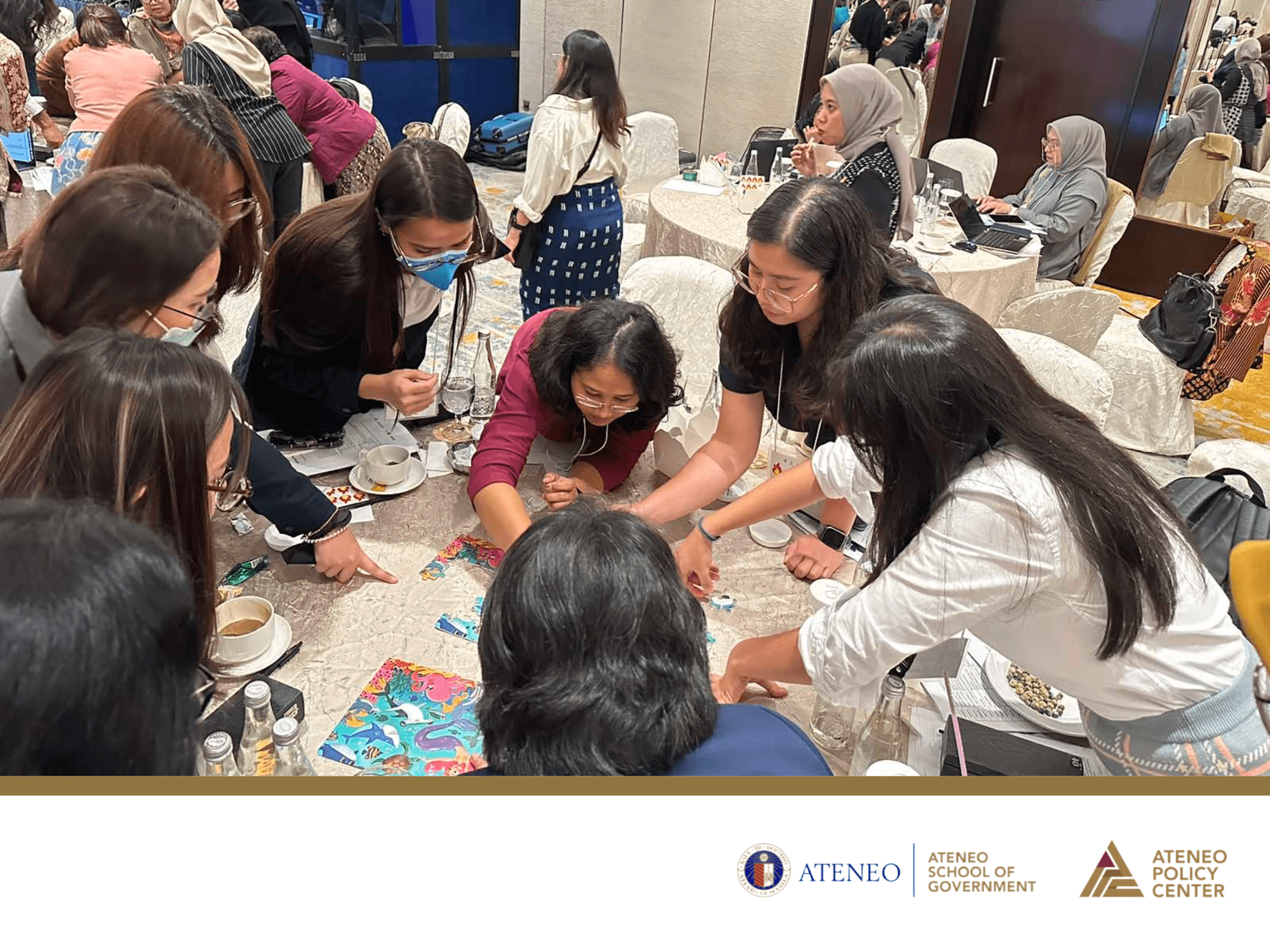
The afternoon session was devoted to exploring and mapping policy-research collaborations across Asia, wherein Ms. Chidinma Eneze from R4D and Sushil Baral from HERD International presented evidence ecosystem models and capacity assessment tools and experience, followed by Dr. Kalvina Chelladorai of the Ministry of Health Malaysia’s presentation on their country’s knowledge translation approaches. Country teams came together to discuss the policy-collaboration models used in their respective countries and developed national profiles, rating the maturity and effectiveness of existing systems and brainstorming ideas for improvement. The session concluded with a synthesis from Dr. Harvy Joy Liwanag from the University of Bern in Switzerland.
Day two: Striking a spark
Day two provided the participants an avenue to further explore policy-research collaboration in their own country contexts and in the broader context of Pacific-Asia. The session started with exchanges among Indonesia, Nepal, Thailand, and the Philippines, represented by Dwi Puspasari, Dr. Krishna Prasad Paudel, Dr. Hathairat Kosiyaporn, and Ms. Ghelvin Aguirre, respectively. Each provided insights of their country’s research agenda and how policy development and research implementation processes were carried out. Key insights include ensuring proposals are anchored on robust evidence and aligned with national direction and effectively navigating the relationship between researchers and policymakers.
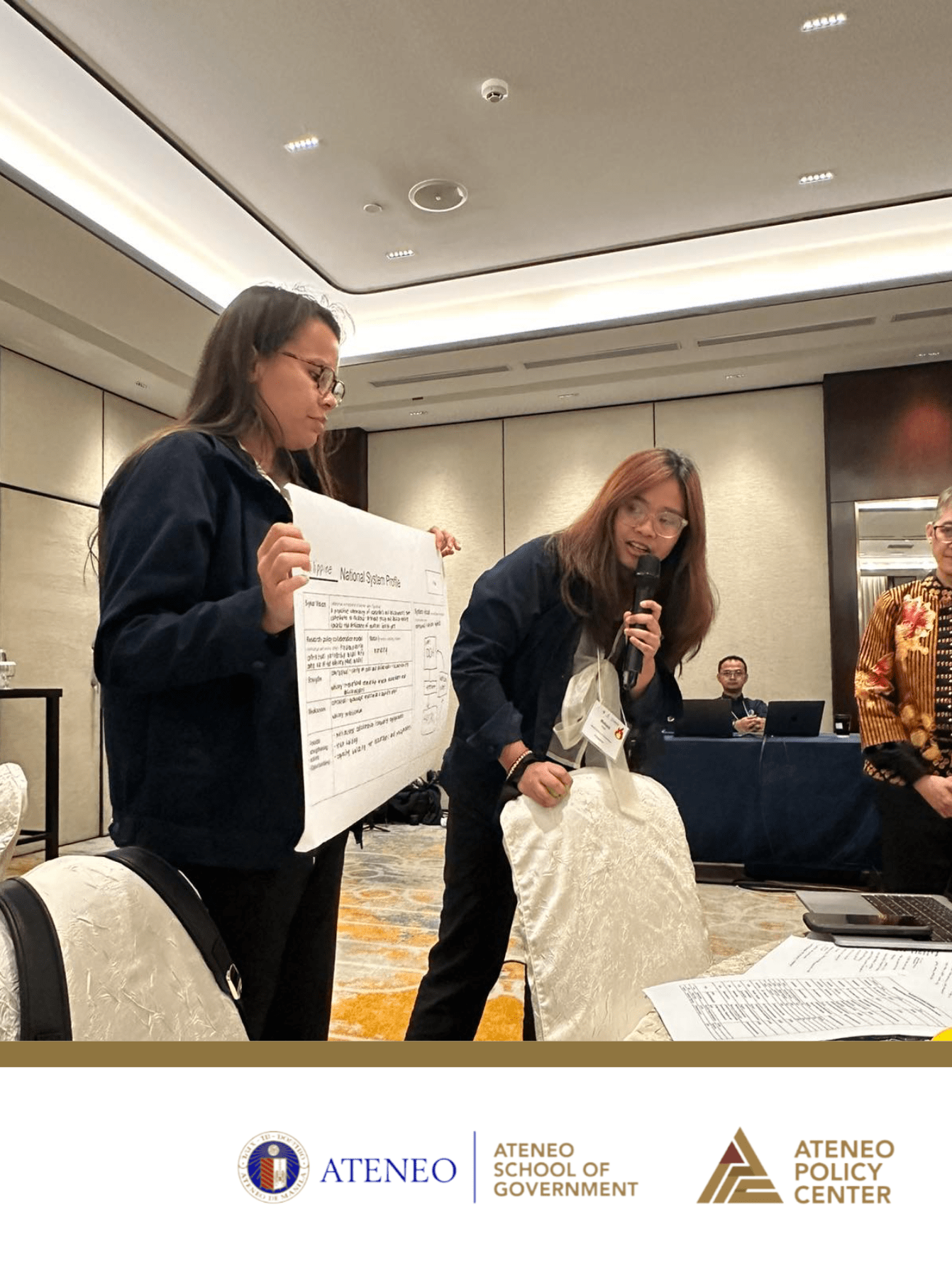
A virtual field trip was held for the participants to learn more about BKPK’s centers and their partners, organizing two breakout sessions. Through the discussions of Dr. Iko Safika of USAID Health Financing Activity, Dr. Ahmad Irsan Moeis of BKPK, and Ms. Astara Lubis of R4D Indonesia, the first session looked into the lessons and successes of the pilot implementation of health financing in BKPK. Meanwhile, the second breakout session discussed the progress of capacity building in BKPK as seen in evidence generation, knowledge translation, and policy advocacy, highlighting the potential part of health vocational schools in Indonesia in bridging research with policy process.
During the afternoon, participants reflected on the role of regional health networks in enhancing the HPSR ecosystem. Representatives from nine global, regional, and country-level networks featured their organizations, namely Learning4UHC, Southeast Asia Collaborative for Health (SEARCH), Joint Learning Network (JLN), Dragon Net, International Working Group for Health Systems Strengthening (IWG HSS), Health Systems Global (HSG), Asia E-Health Information (AeHIN), Asia Pacific Network, and Health Systems Transformation Platform (HSTP). Among the key insights and opportunities that emerged are the exploration of joint initiatives and policy dialogues, wherein a coalition of researchers can amplify their voice and strengthen their impact on policymaking.
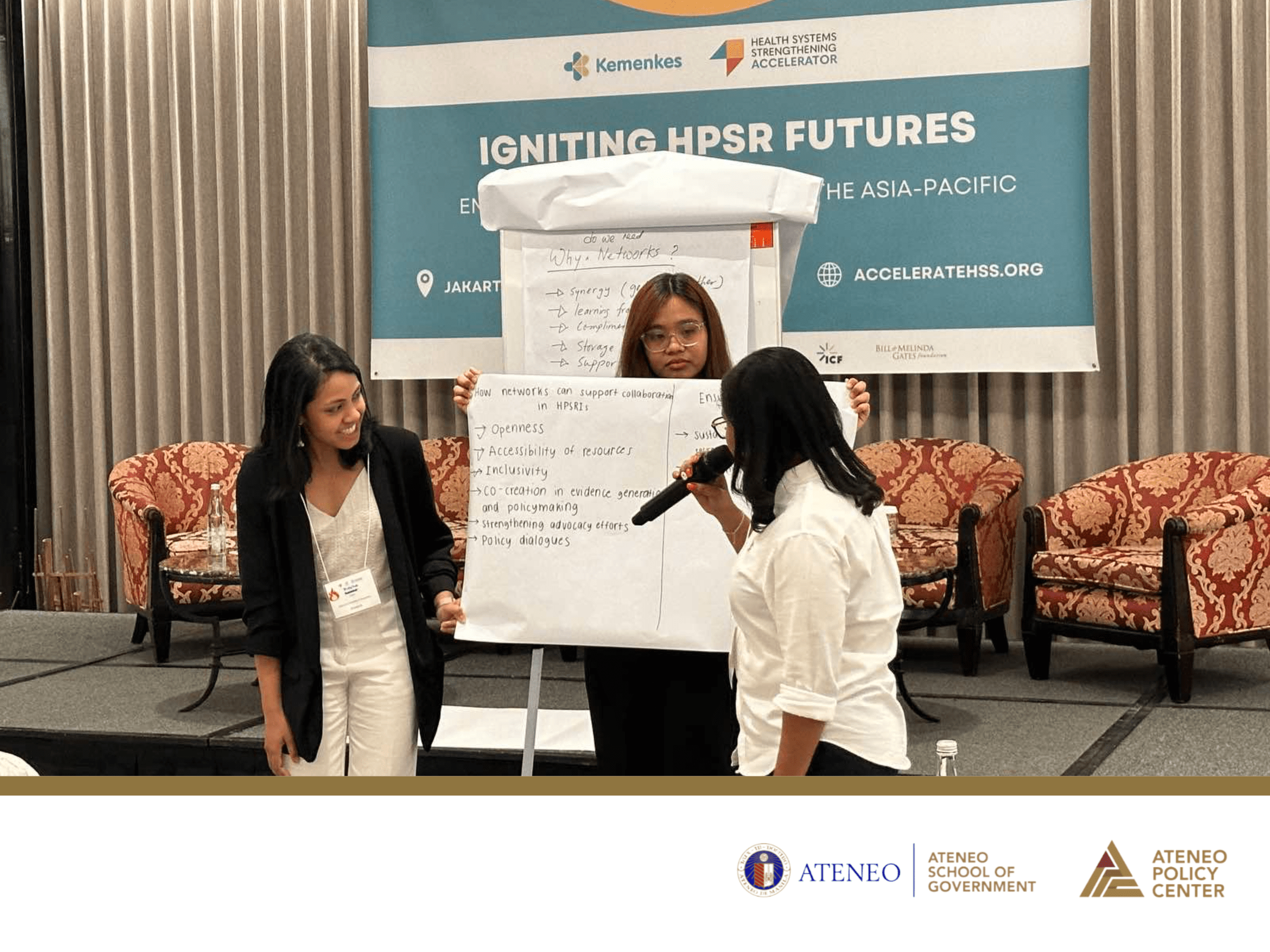
The session ended by grouping together countries operating under the same policy-collaboration models to determine bottlenecks within the model and tackle how these can be addressed and improved.
Day three: Fanning the flames
The final day served as the culmination of the three-day workshop. The session kicked off with participant presentations of policy-research collaboration models, wherein action ideas on improving the model were introduced.
The presentations included the Integrated Knowledge Translation Model composed of Bangladesh, Nepal, Timor-Leste, Lao PDR, and Myanmar, which leverages on continuous HPSR engagement that may be sustained by domestic institutional frameworks and regional databases. Meanwhile, the Philippines underscored the importance of capacity assessment and feedback mechanism to strengthen the relationship between researchers and decision-makers and bridge knowledge translation gaps in the Contractual Model.
The presentation is followed by the Advisory Panel Model adopted by Cambodia and Malaysia who advance establishing a coordination body or evidence broker to facilitate multi-stakeholder collaboration and leverage transparency and trust among stakeholders. Finally, India, Thailand, Singapore, and Indonesia presented Mixed Models, which they identified as need-based, experience-based, and flexible to accommodate specific context and purposes. Among their main suggestions is the co-creation of a new model that introduces a policy intermediary role and a platform that effectively accommodates inputs from the research community into agenda-setting.
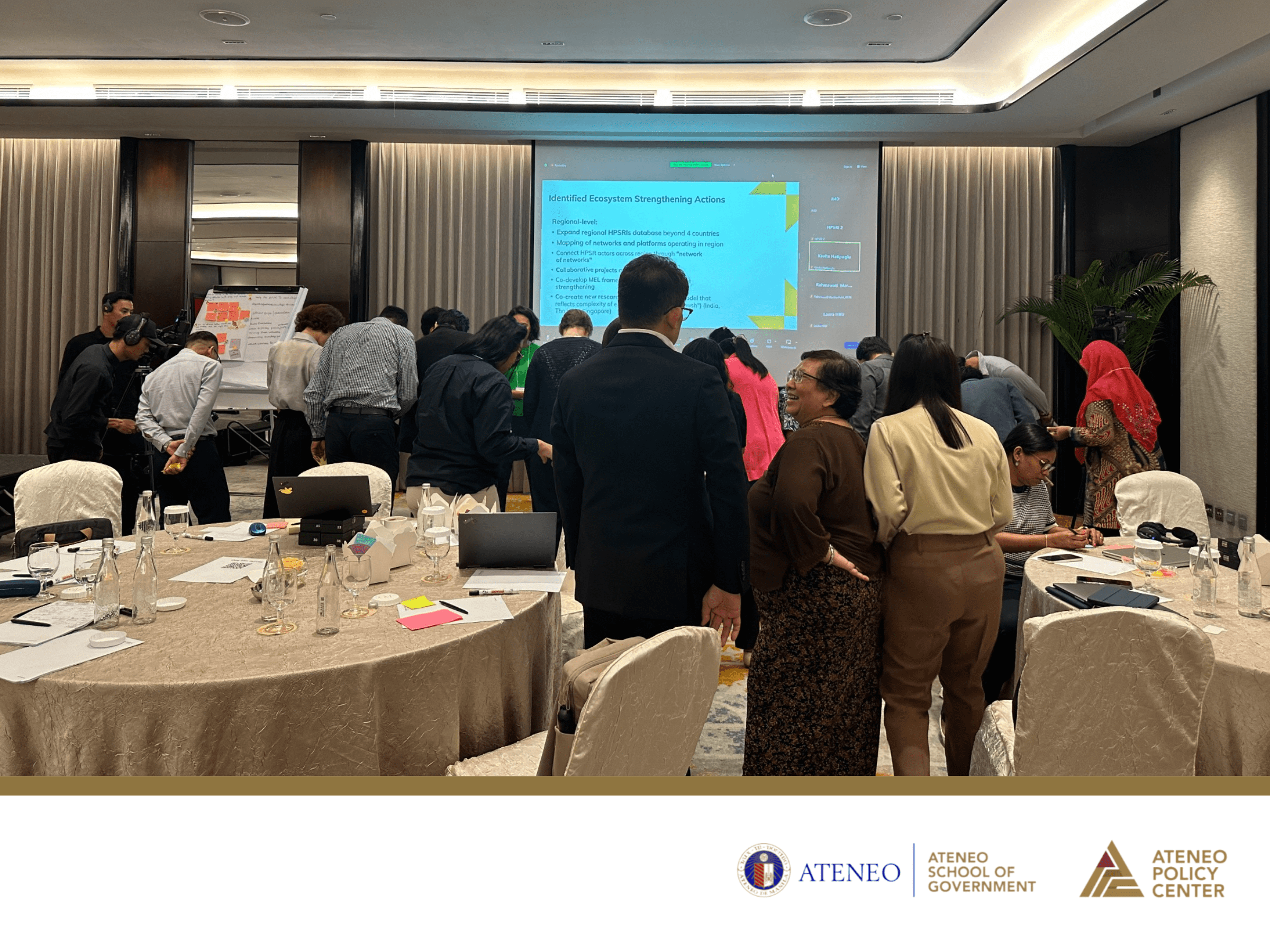
For the final activity, participants were once again grouped, this time according to their torchbearing roles: as HPSRIs, government, networks, and development partners. HPSRIs committed to mapping HPSRIs, adapting capacity assessment tools, regional convening, expanding regional HPSRI databases, and conducting collaborative projects. Meanwhile, government officials pledged to engage all decision-making actors and make evidence available to all stakeholders. Finally, networks and development partners vowed to work towards synergy and building on relationships built over the past three days through co-creation and sustainable funding.
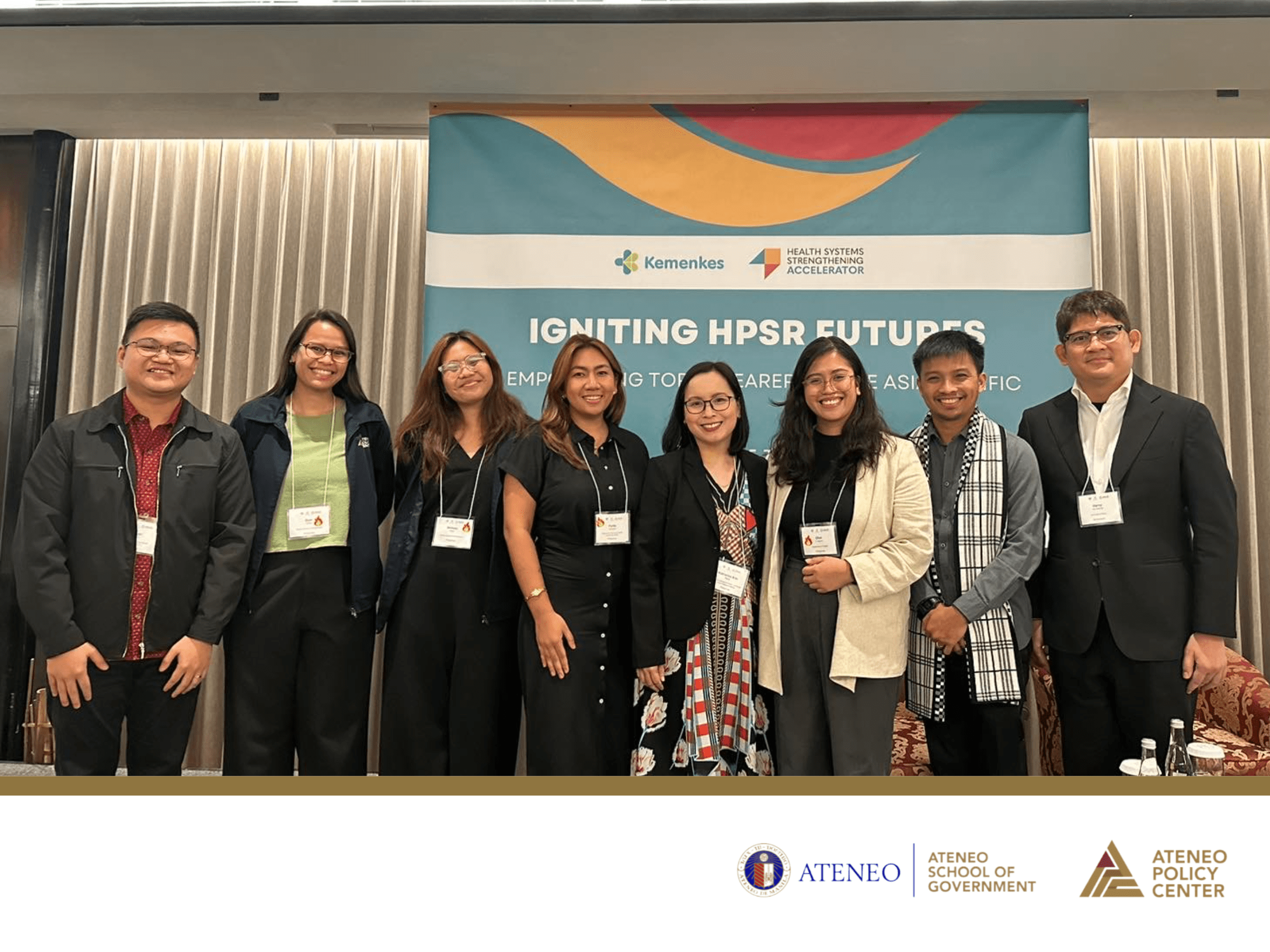
The event ended with an ardent commitment from each and every participant to fulfill their roles as torchbearers, contributing towards the collective goal of health systems strengthening in Asia.


